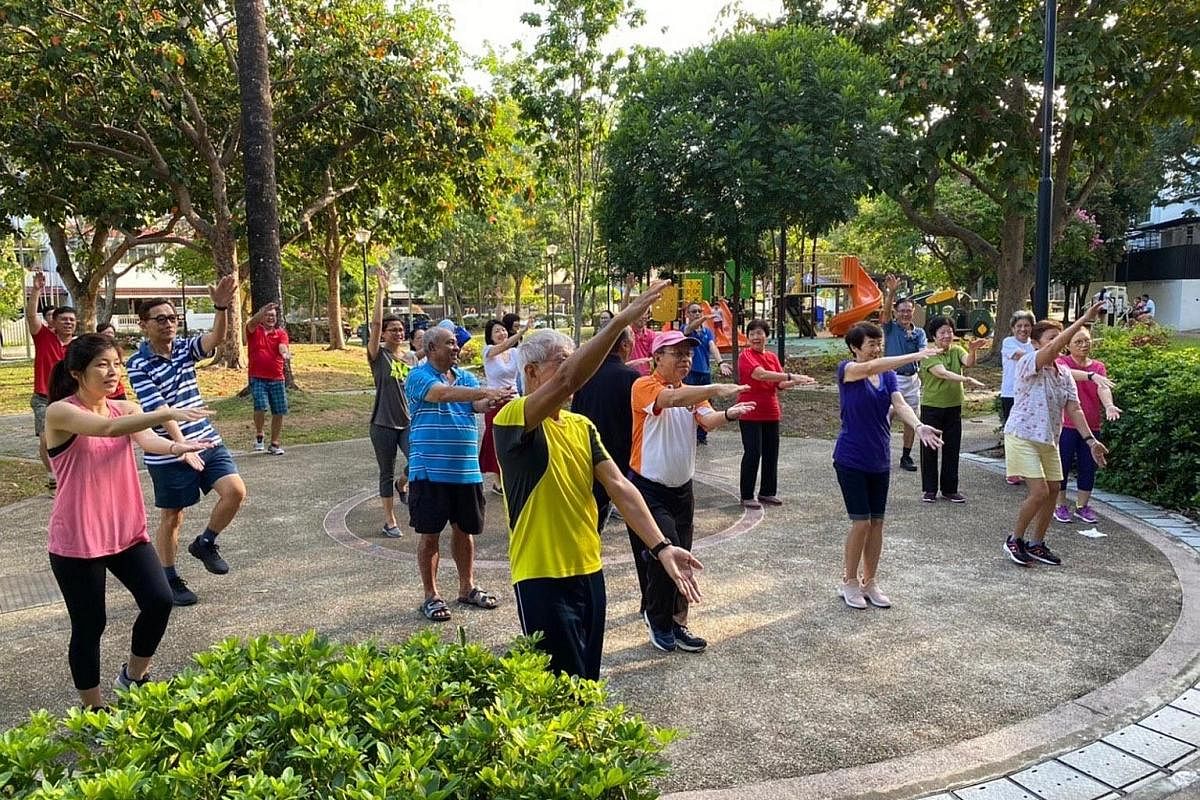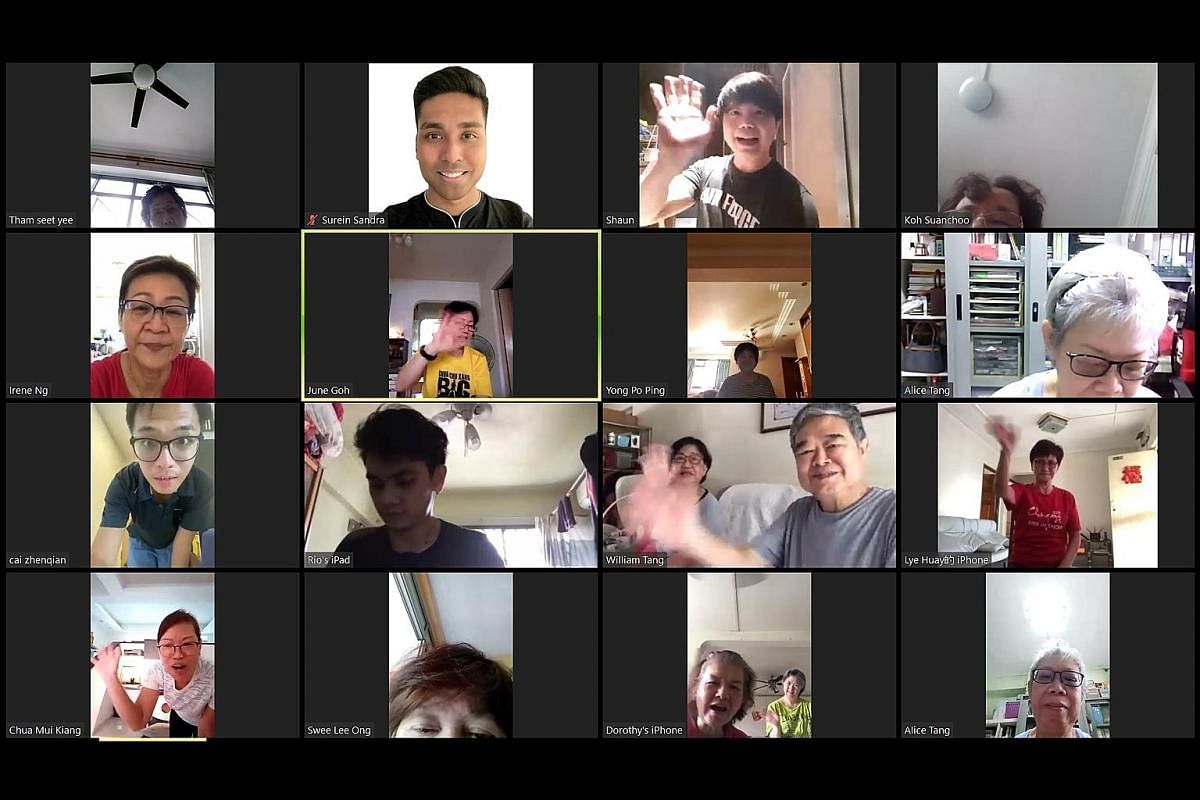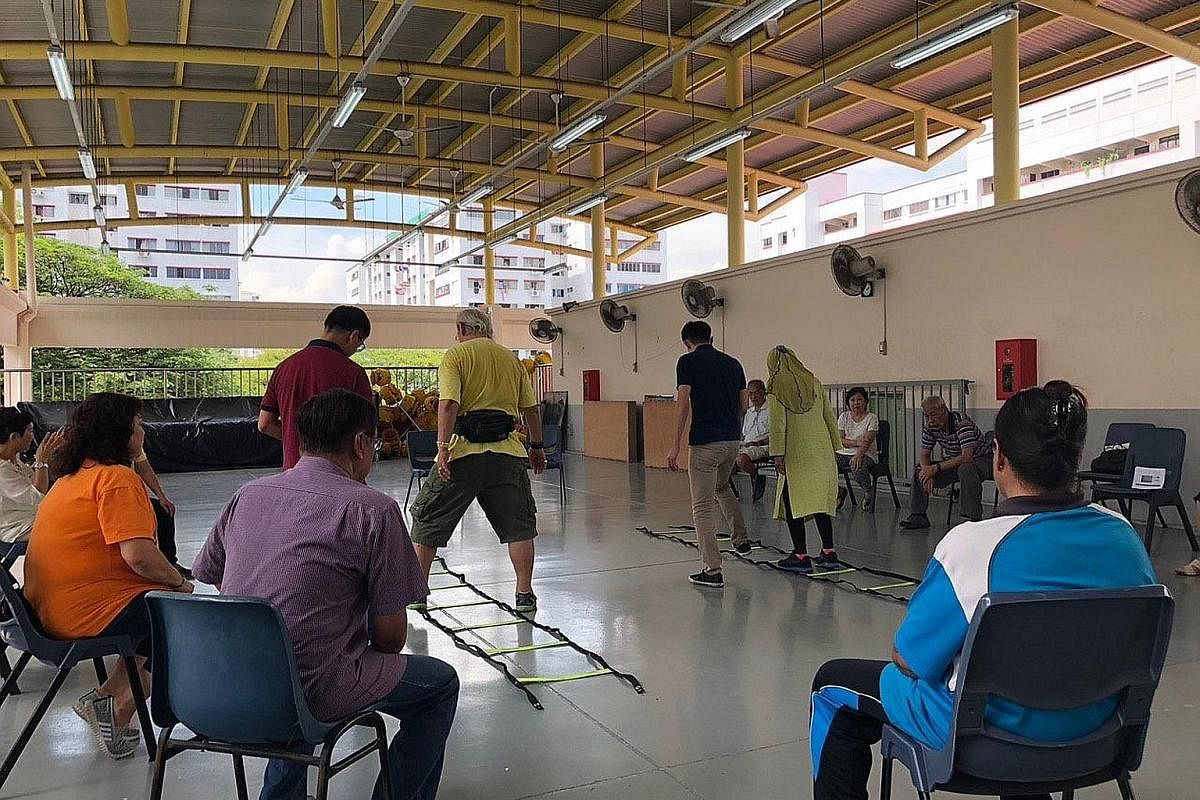-
Tips for seniors to beat isolation
-
1 Pick up a new hobby
Hobbies can keep seniors motivated and make passing the time enjoyable.
Some hobbies ideal for seniors and those with impaired mobility include sewing, arts and crafts and learning to play a new instrument.
They can also set a goal when pursuing a hobby, such as finding a rare stamp to add to their collection or knitting a blanket for a grandchild's first birthday.
2 Stay connected with the community
Seniors can get involved in many volunteering opportunities such as making telephone calls to low-income families and to seniors who live alone.
Volunteering for such tasks and engaging with the community will give seniors a sense of purpose and relevance. Helping others can also benefit mental health and well-being, research shows.
SG United, SG Cares, RSVP Singapore and Lions Befrienders are some platforms and organisations that provide volunteering or remote contribution opportunities.
However, trying to engage seniors in meaningful and purposeful phone conversations may prove a challenge as many of them are hard of hearing.
Amplifiers or sound-enhancement tools can help improve their hearing when watching movies or talking on the phone. These aids cancel background noise and enhance vocals, improving the overall quality for the seniors with hearing difficulty.
3 Exercise in the park or neighbourhood
Taking a walk in the neighbourhood or doing simple exercises in the park can help seniors feel better. Even though safe distancing still has to be observed, a simple interaction with another human being through a wave or a smile can help stave off feelings of loneliness.
4 Choose a home-based care service
A weekly or biweekly home-based care service that can include elder-sitting and engagement, especially for home-bound seniors, can be arranged to help ease the sense of isolation.
Even for just an hour or two, once or twice a week, it could go a long way to support seniors and prevent them from feeling neglected.
Staff of senior care centres, active ageing hubs and senior activity centres keep in touch with their senior clients to check on their physical and emotional well-being during the closure of the centres due to the circuit breaker.
5 Create a routine
Having a routine can help seniors better handle their emotions. An active routine, which could include walking or exercising, engaging in a creative activity they are interested in and helping with household chores, helps prevent seniors from taking naps during the day and disrupting their sleep at night.
6 Set simple, small, achievable goals Setting simple achievable goals can help seniors improve their mood and keep them motivated.
This could include reading a book, cleaning up a messy storage space or shelf, reorganising a music or book collection or looking back at old photos, letters or diaries.
• Source: Active Global Home & Community Care medical director Adriel Rao Kailing
COVID-19 SPECIAL
Happy to beat isolation
The Healthy Ageing Promotion Programme For You, or Happy, has gone online to help seniors stay active and busy during the circuit breaker period



A programme called Happy has kept retiree Tham Seet Yee active and busy, even now with the circuit breaker measures in place.
The 73-year-old is among the seniors taking part in the physical exercise programme called Healthy Ageing Promotion Programme For You (Happy), which has helped senior citizens improve their mental well-being, memory, functional ability and strength.
A study found that almost one in two seniors aged 60 and above in Singapore is at risk of social isolation, given their limited mobility, age-related physiological changes and the propensity to develop ill health.
The study on 202 seniors released last month by researchers from the National University Hospital (NUH) and National University of Singapore (NUS) Yong Loo Lin School of Medicine also found that slow gait was strongly associated with social isolation, and such isolation has been shown to lead to an increase in hospital re-admission, diseases and death.
Associate Professor Reshma Merchant, who heads the Division of Geriatric Medicine at NUH, says: "It is a rising public health concern globally, given its link to poor health status, impaired mobility and cognitive function."
But all is not lost for those who have trouble with their physical movements. Seniors can improve their mobility and walking speed by performing simple exercises, adds Prof Merchant, a principal investigator of the study.
In a bid to help mitigate the impact of Covid-19 and ensure that seniors are socially engaged and active at home during the circuit breaker, NUH has introduced the Happy programme to more than 1,000 seniors through video-conferencing platform Zoom.
Before the circuit breaker measures were announced, seniors had been participating in the programme at 86 senior activity centres and void decks across Singapore.
Since April 22, the sessions have been held online on Wednesdays and Fridays from 2 to 3pm.
Happy, which is run by NUH, started in 2017 and was adapted from a programme designed by the National Centre for Geriatrics and Gerontology in Nagoya, Japan.
Participants simultaneously perform cognitive and physical "dual-task" exercises.
For example, one involves marching on the spot while counting backwards from 30 and clapping on every third number.
Another has seniors reciting as many countries, MRT stations or hawker food as possible while marching on the spot.
The programme also aims to get seniors to take charge of their health, such as by teaching them to take their own blood pressure and pulse.
For Madam Tham, Happy is unlike other exercise programmes she has been involved in.
Madam Tham, who used to work in a library, says: "While the other programmes like qigong exercise the body, Happy is the only one that constantly challenges and stimulates me mentally while I'm doing the exercises."
She has been participating in the programme since December 2017 after she was invited to join it following a health screening conducted by NUH at Bukit Panjang Community Centre.
Her husband, 73, who used to frequent the gym, now joins her in the online exercise sessions.
Apart from reaping the benefits from exercise, Madam Tham, who keeps in touch with other participants on WhatsApp after the exercise session, says: "I'm also happy I can still catch up with the friends I have made from the programme."
Prof Merchant says simple exercises, such as stretching, marching forward and backwards, and holding water bottles and drink cans, can be done easily at home.
Marching on the spot, and singing and counting at the same time stimulates both sides of the brain.
"We need to get the messaging right that social distancing is not social isolation, and seniors can continue to be active and socially engaged through a programme like this," she says.
She also cautions that a sedentary lifestyle, such as eating and sitting around daily, can lead to muscle wasting, weakness, falls and functional decline, and may worsen memory problems.
Strong social network is associated with better memory and has a protective effect against the development of dementia and depression.
Prof Merchant says: "This is important in enabling older adults to age in place and improve their quality of life."
Mr Surein Sandrasageran, who has been conducting the programme since August 2017 at the Choa Chu Kang Fei Yue Retirees Centre, says: "The most obvious difference is that the seniors have become a lot more energetic and happy."
"Their walking ability has also improved. We have some seniors with a history of falling. Most of them have shared feedback that they are more confident to walk and some even don't require the use of a walking aid now," says Mr Sandrasageran, a manager at NUH's Division of Geriatric Medicine.
The 30-year-old, who can also speak Mandarin, says it is heartening to see that the seniors look forward to the programme when they see the benefits, and also interact with their newfound friends.
He says there are more than 100 variations of exercises in the programme and he always tries to do something different every lesson to keep the seniors interested.
The sessions are led by a team of four full-time coaches. Though the programme is targeted at seniors, there is no age criteria for joining it.
For seniors who are not as tech-savvy, a coach calls and guides them through the online set-up on a desktop computer or tablet, sometimes with the help of a family member.
Mr Tan Peck Liang, who has been attending the sessions at Bukit Panjang Community Centre since December 2018, loves the range of exercises in the programme.
"I make it a point to always attend the sessions because I enjoy the many variations of the exercises. I try to do them on my own every day because they keep me physically and mentally active," says the 72-year-old retired construction manager.
Now, he uses his smartphone to take part in the programme on Zoom, with the help of his 40-year-old daughter, who set it up for him.
He says that thanks to the "unique exercises", his stiff joints are now more flexible, his blood pressure is down and his memory is better.
"I have more friends now compared with before I joined the programme. I meet fellow seniors from all walks of life. It's interesting to talk to them because they all have different views on things."
• To sign up for the programme, e-mail healthy_ageing@nuhs.edu.sg
Join ST's Telegram channel and get the latest breaking news delivered to you.
A version of this article appeared in the print edition of The Straits Times on May 11, 2020, with the headline Happy to beat isolation. Subscribe

